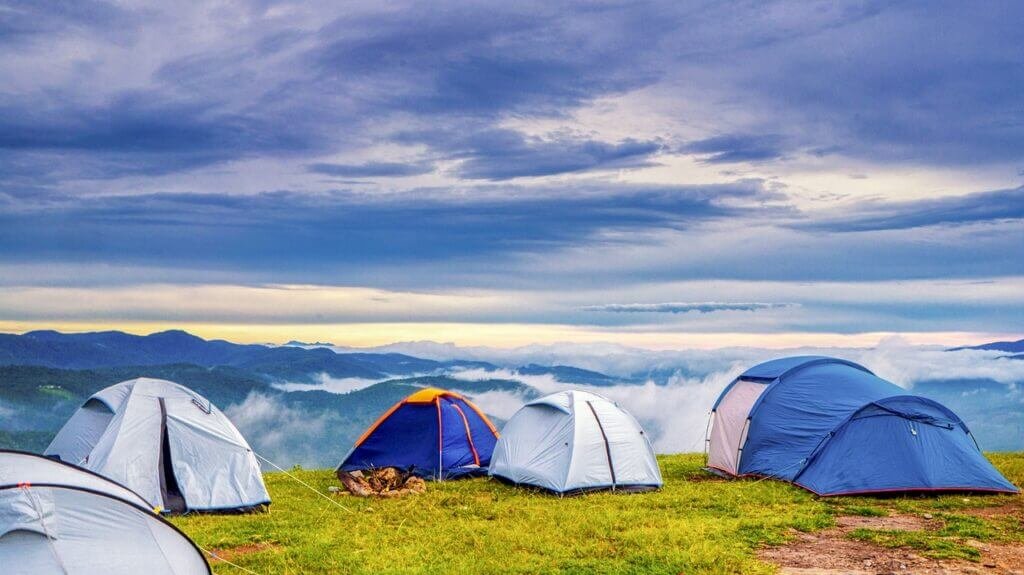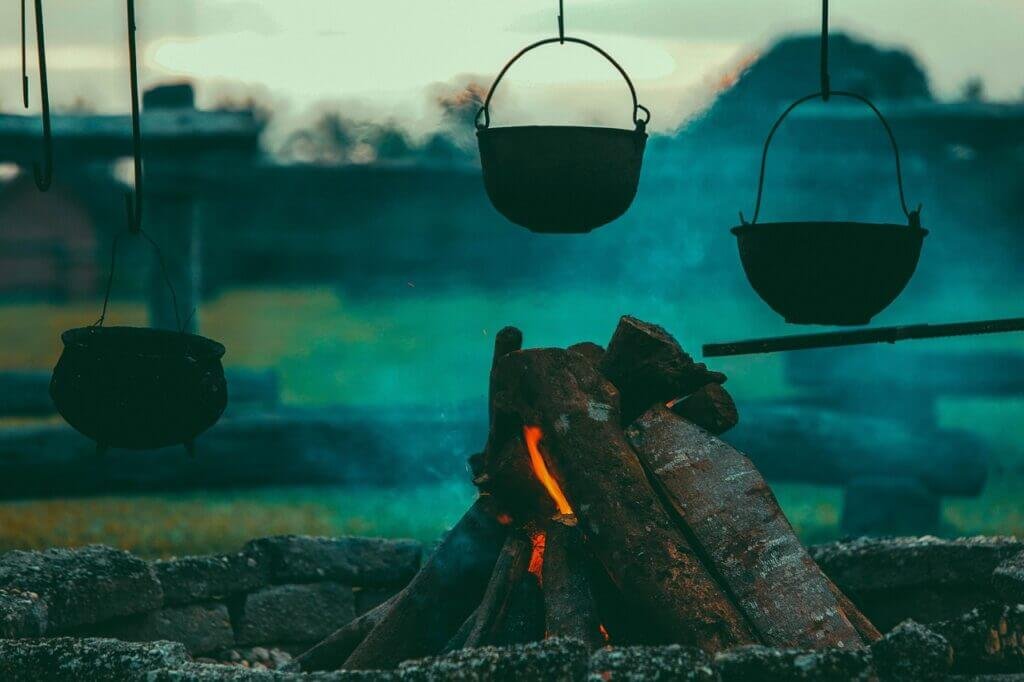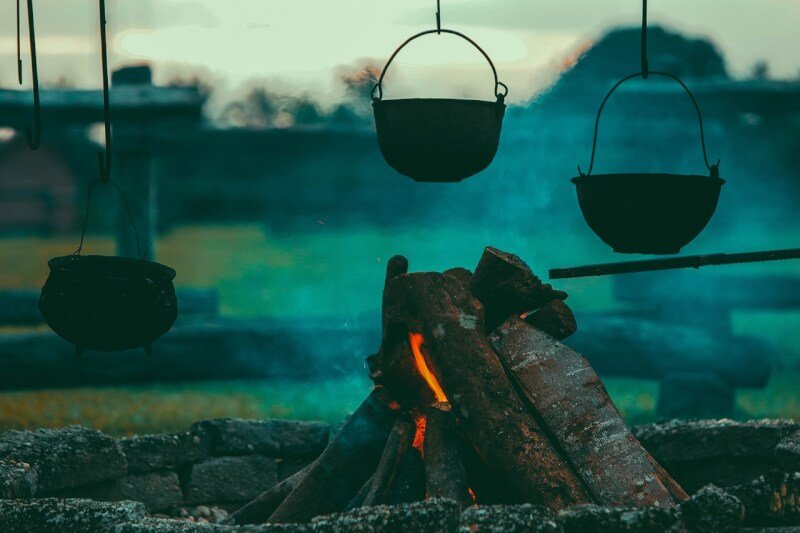Camping in the great outdoors is an exhilarating experience that allows you to reconnect with nature and escape the hustle and bustle of everyday life. However, this adventure also comes with its fair share of challenges, particularly when it comes to insects and wildlife. From pesky mosquitoes to curious raccoons, it’s important to know how to protect yourself from these critters while enjoying your camping trip to the fullest. So, whether you’re a seasoned camper or a first-timer, read on to discover some tips and tricks to ensure that your outdoor adventure remains bug-free and animal-free.

Choosing the Right Campsite
When it comes to camping, choosing the right campsite can make a big difference in your overall experience. Consider the location of the campsite. Look for a spot that is away from heavily trafficked areas to ensure a peaceful and relaxing camping trip. It’s also important to look for natural barriers such as trees or rocks, as they can provide some protection from wind and unwanted visitors. Lastly, avoid camping near bodies of water, as mosquitoes tend to inhabit those areas.
Setting up Camp
Once you’ve found the perfect campsite, it’s time to set up camp. Properly pitching your tent is crucial to ensure a comfortable and bug-free sleep. Make sure to read the instructions and follow them carefully. A well-pitched tent will help keep insects out and provide an enjoyable camping experience. Additionally, keeping a clean campsite is essential in preventing insects from being attracted to your area. Be sure to dispose of trash properly and keep all food stored in secure containers. Lastly, using mesh screens and bug nets can add an extra layer of protection from unwanted insects.

Using Repellents
Insect repellents can be an effective tool in warding off bugs while camping. Applying insect repellents to exposed skin can help keep mosquitoes, ticks, and other bugs at bay. Look for products that contain DEET or picaridin, as they have proven to be effective against a wide range of insects. It’s also advisable to wear protective clothing, such as long sleeves and pants, to minimize the amount of exposed skin. If you prefer a more natural approach, there are also several natural repellents available that rely on essential oils like citronella or lemon eucalyptus.
Protecting Against Mosquitoes
Mosquitoes can quickly turn a pleasant camping trip into an itchy nightmare. To protect yourself from mosquitoes, it’s important to eliminate standing water from your campsite. Mosquitoes breed in stagnant water, so be sure to remove any sources of standing water, such as puddles or containers. Using mosquito nets around your sleeping area provides an additional layer of defense against these pesky insects. Mosquito-repellent candles can also be effective in keeping mosquitoes at bay by emitting scents that mosquitoes find unpleasant.

Dealing with Ticks
Ticks are not only a nuisance, but they can also transmit diseases such as Lyme disease. To protect yourself from ticks while camping, it’s recommended to wear light-colored clothing to make it easier to spot them. Applying tick repellents to your skin and clothing can help deter ticks from latching onto you. Additionally, conducting regular tick checks on yourself, your family members, and your pets can help catch and remove any ticks before they become a problem.
Preventing Spider Bites
While most spiders are harmless, it’s still important to take precautions to prevent spider bites while camping. Before putting on clothing and shoes, make sure to shake them out to avoid any unwanted surprises. Keeping your tent zipped up at all times can also prevent spiders from making their way inside. Lastly, eliminating food remnants and keeping your campsite clean can help deter spiders from coming near your camping area.
Avoiding Bee and Wasp Stings
Bees and wasps can be a concern for campers, especially if you or someone in your group is allergic. To avoid bee and wasp stings while camping, it’s advisable to avoid wearing fragrances and brightly colored clothing, as they can attract these insects. Keeping food and drinks covered when not in use can also prevent bees and wasps from being attracted to your campsite. If you do encounter a nest, it’s important to quickly move away to avoid any potential stings.
Protecting Against Snakes
While snake encounters are relatively rare, it’s still important to take precautions to protect yourself while camping. Being aware of your surroundings and watching where you step can help minimize the risk of an unintended snake encounter. Wearing proper footwear, such as closed-toe shoes or boots, can provide an extra layer of protection. Lastly, it’s advisable to avoid hiking in tall grass or areas with dense underbrush, as these can be favored hiding spots for snakes.
Handling Encounters with Larger Animals
Encountering larger animals, such as bears or deer, can be both exciting and potentially dangerous. To ensure your safety and the well-being of the animals, it’s important to store food properly. Keep all food and scented items in bear-proof containers or suspended from a tree at least 10 feet high and 4 feet away from the trunk. Making noise while hiking or moving around your campsite can alert wildlife of your presence, helping to avoid surprise encounters. Lastly, it’s crucial to never approach or feed wild animals, as this can lead to potentially dangerous situations for both humans and animals.
Preparing for First Aid Emergencies
Having a well-stocked first aid kit is essential for any camping trip. Make sure your first aid kit contains essentials such as bandages, antiseptic ointment, and pain relievers. It’s also important to learn basic first aid skills, such as CPR and basic wound care, before heading out on your camping adventure. Knowing when to seek medical attention is crucial, so familiarize yourself with common camping injuries and their appropriate treatments. Being prepared for first aid emergencies can give you peace of mind and ensure a safe camping experience.
By following these tips and taking the necessary precautions, you can have a enjoyable and safe camping trip while protecting yourself from insects and wildlife. Remember, preparation and awareness are key to a successful outdoor adventure. Happy camping!


